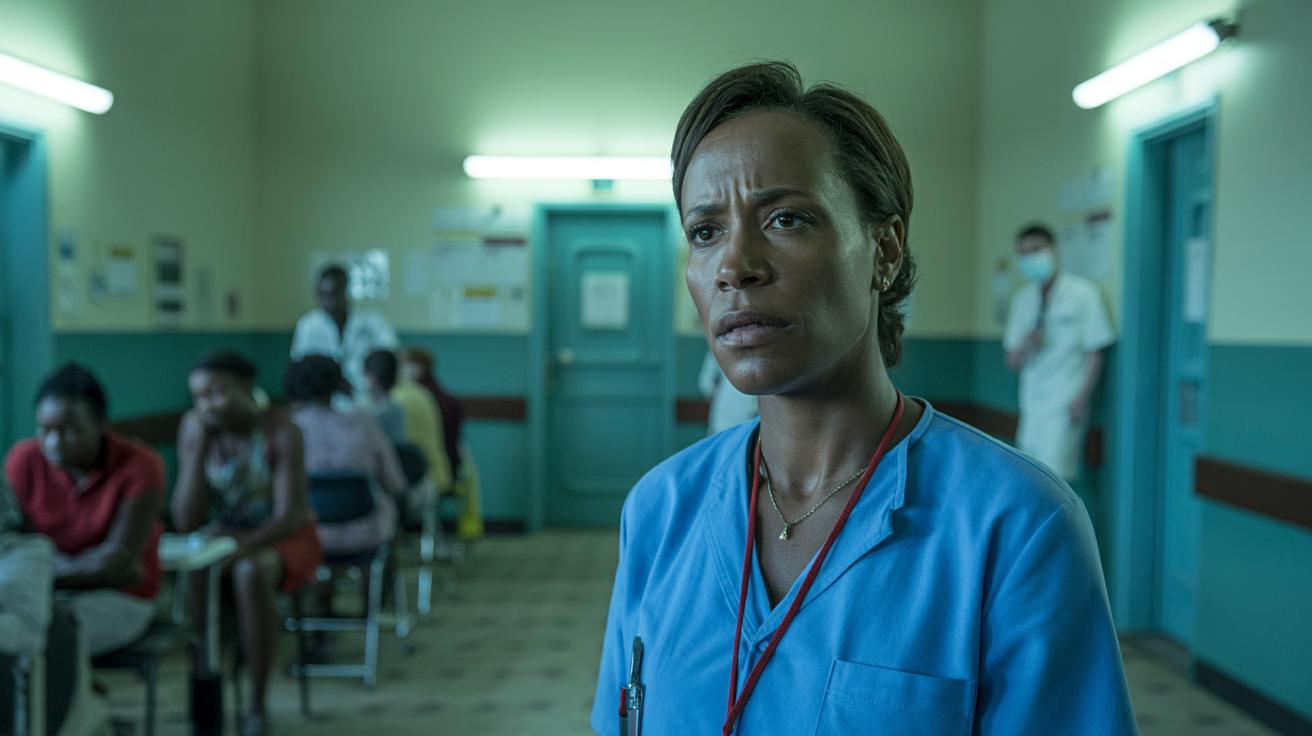What You Need to Know
- 📉 US Aid Cuts Impact: The abrupt reduction in U.S. aid threatens to reverse the progress made in combating HIV/AIDS in South Africa.
- 🏥 Clinic Closures: Many USAID-funded clinics have shut down, leaving thousands of HIV-positive patients without reliable access to medications.
- 🔬 Research Stalled: The funding cuts have hindered ongoing research projects, delaying crucial advancements in HIV vaccines and treatments.
- 🌍 Global Repercussions: The potential increase in HIV infections and AIDS-related deaths could have devastating effects worldwide, undoing years of global health progress.
- 🤝 Seeking Solutions: South African authorities and international organizations are urgently seeking alternative funding sources to sustain vital healthcare services and research.
The recent decision by the United States to cut foreign aid has sent shockwaves through global public health initiatives, particularly those focused on fighting HIV/AIDS in South Africa. With approximately 7.7 million people living with HIV, South Africa holds the highest number globally. The impact of these funding cuts is profound, potentially reversing years of progress in combating the epidemic. As clinics close and resources dwindle, thousands of patients, who rely on these programs for life-saving medications, face an uncertain future. The broader implications for global health and research are dire, raising questions about the sustainability of these critical initiatives.
Impact on South Africa’s HIV/AIDS Patients
The cuts in US aid have directly affected the operations of numerous clinics across South Africa, which have been pivotal in providing antiretroviral treatments. These facilities, previously funded by USAID, have been a lifeline for many, including vulnerable populations like sex workers. Gugu, a project coordinator for an NGO, shared her experience of receiving a bulk supply of medication before her clinic shut down. This foresight allowed her a temporary reprieve, but many others were not as fortunate. Patients now face the daunting prospect of relying on overburdened public hospitals, which require individuals to arrive at dawn and endure lengthy waits.
For sex workers, this situation is particularly challenging, as time away from work directly impacts their income. The stigma and insensitive treatment reported in public hospitals further discourage them from seeking necessary care, potentially leading to treatment interruptions. This reality underscores the critical importance of accessible and sensitive healthcare services for all, particularly marginalized communities.
The Global Repercussions of Aid Reductions
The ramifications of these funding cuts extend beyond South Africa. According to a report from the UN body responsible for fighting HIV/AIDS, the reduction in aid threatens to undo the phenomenal progress made over the past decades. New infections have decreased by 40% since 2010, and millions of children have been safeguarded from the virus. However, without sustained funding, these gains are at risk of reversal.
The potential increase in HIV infections and AIDS-related deaths could have devastating global consequences. The cuts have also stalled research efforts, hindering the development of new vaccines and treatments. Scientific advancements in HIV prevention and treatment, many of which originated in South Africa, are crucial for maintaining the momentum in combating the epidemic. With the funding gap, the global health community faces a significant challenge in continuing these life-saving efforts.
The Role of Research and Innovation
South Africa has been a leader in HIV research, contributing significantly to the development of innovative treatments and prevention methods. The recent advancements in medications like Pre-Exposure Prophylaxis (PrEP) and Lenacapavir demonstrate the importance of sustained research efforts. These breakthroughs have provided hope to millions, offering effective prevention strategies and reducing the risk of infection.
However, the funding cuts have jeopardized ongoing research projects, including trials for new vaccines. Scientists at institutions like Wits University’s Health Sciences campus are struggling to continue their work. The abrupt halt in funding has caused delays, and researchers are now seeking alternative sources to sustain their projects. This situation highlights the critical need for consistent investment in research and innovation, ensuring that progress is not stifled by financial constraints.
Seeking Solutions and the Path Forward
In response to the funding crisis, South African authorities and international organizations are exploring alternative solutions. The Bill and Melinda Gates Foundation and the Wellcome Trust have committed to providing some financial support, but the amount falls short of what is needed to fill the gap left by the US cuts. The South African government is also working to secure additional resources to continue vital research and healthcare services.
Despite these efforts, the challenge remains formidable. The global community must consider how to sustain the progress achieved in combating HIV/AIDS and ensure that vulnerable populations are not left behind. This situation calls for renewed commitment and collaboration among nations, philanthropists, and organizations to address the funding shortfall and support critical health initiatives.
The future of HIV/AIDS treatment and prevention in South Africa hangs in the balance as the world grapples with these funding challenges. The need for innovative solutions and sustained investment is more pressing than ever. How will the global community rise to this challenge and ensure that the fight against HIV/AIDS continues to move forward?
Did you like it?4.3/5 (27)





7 comments
EzekielTitan
Wait, how does cutting aid help anyone? Seems like a lose-lose situation to me… 🤷♂️
muffin
Hope South Africa finds the funding they need. The world can’t afford to go backwards in this fight against HIV!
Harrison_Beacon
Is there a way for individuals to help? Maybe through donations or supporting certain organizations?
Riley
So, we’re just gonna ignore the problem and hope it goes away? Classic move. 🙄
Hunter
Oh no, this sounds really bad! What’s being done to help those who are losing access to their medications?
caleb
Thank you for bringing attention to this issue. It’s crucial that more people are aware of the potential consequences.
samuel
Why did the US decide to cut aid now? It seems like the worst time to do so with so much at stake. 🤔